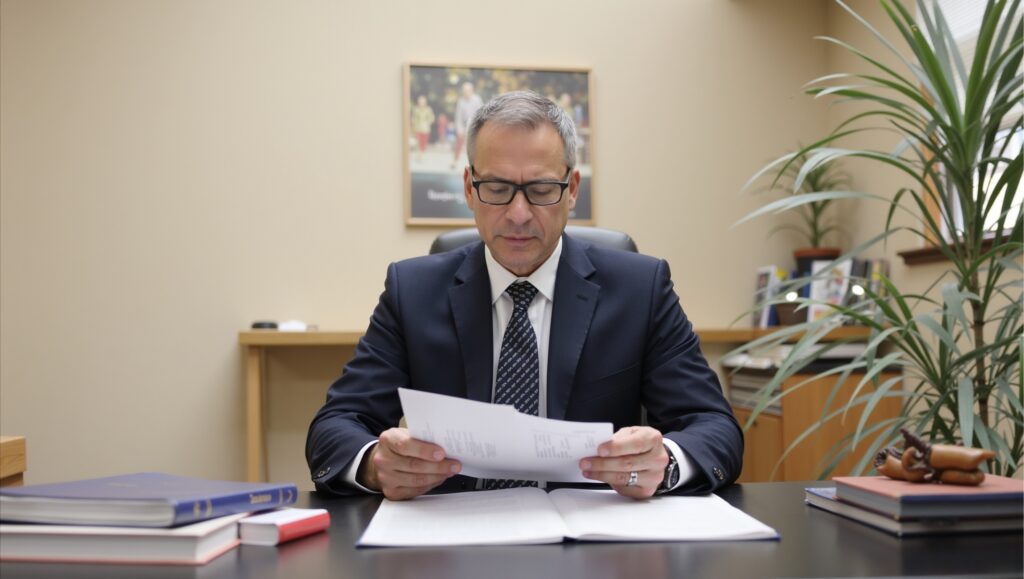Costa Rica has become a sought-after destination for real estate investment, attracting both local and foreign buyers with its stunning landscapes, diverse culture, and stable economy.
However, navigating the waters of Costa Rica property laws can be daunting for newcomers.
As a buyer, it’s essential to have a firm grasp of the legal landscape to safeguard your investment and avoid common pitfalls.
In this guide, we’ll delve into the nuances of Costa Rica property laws, the types of property ownership available, the critical role of a real estate attorney, and essential regulations that foreign buyers need to consider.
Whether you’re looking to purchase a beachfront condo or a hillside villa, understanding these key aspects will ensure a seamless property acquisition process in the beautiful paradise of Costa Rica.

Key Takeaways
- Costa Rica property laws are essential for understanding the legal framework for buying real estate.
- There are various types of property ownership in Costa Rica, each with distinct rights and responsibilities.
- Engaging a knowledgeable real estate attorney is crucial for navigating property transactions and local regulations.
- Foreign buyers must be aware of specific regulations that affect their ability to purchase property in Costa Rica.
- Conducting thorough due diligence and understanding property taxes and fees are vital steps to avoid future complications.
Understanding Costa Rica Property Laws
Understanding Costa Rica property laws is essential for anyone considering purchasing real estate in this beautiful Central American country.
Costa Rica is well-known for its biodiversity, stunning landscapes, and friendly locals, making it an attractive destination for international buyers.
However, navigating the complexities of Costa Rica property laws can be challenging without proper guidance.
Foreigners are entitled to own property in Costa Rica, including land, homes, and condominiums, but there are specific regulations and requirements that must be fulfilled.
For instance, properties within certain zones, like the maritime zone, have special restrictions.
Buyers should also familiarize themselves with the process of property registration, tax implications, and the importance of due diligence to ensure a smooth transaction.
Working with a knowledgeable real estate agent and a reputable lawyer can make all the difference in making informed decisions while adhering to Costa Rica property laws.
Types of Property Ownership in Costa Rica
When considering investing in Costa Rica real estate, it’s crucial to understand the different types of property ownership available, particularly within the framework of Costa Rica property laws.
These laws are designed to protect both local and foreign buyers and provide a transparent process for property transactions.
The most common forms of ownership include fee simple, which is akin to owning property in perpetuity and grants full rights to the owner, and restricted zone ownership, which applies to properties located within 50 meters of the coastline.
Foreigners may also engage in a condominium regime, where ownership is divided among individual units, often allowing for shared amenities and resources.
Additionally, investors might encounter a corporation-owned structure, where a Costa Rican corporation is established to own property, providing added legal protection and flexibility.
Understanding these types of ownership is essential for navigating the real estate landscape in Costa Rica, ensuring a safe and secure investment.
‘The law is a guide to life, but in the case of property, it is the map that helps us navigate the sometimes treacherous waters of ownership.’

The Role of a Real Estate Attorney
Navigating the complexities of Costa Rica property laws can be daunting, especially for foreigners looking to invest in real estate.
This is where the expertise of a real estate attorney becomes invaluable.
A qualified attorney will help you understand the intricacies of local regulations, ensuring that your property transaction complies with all legal requirements.
They can assist in conducting due diligence to verify property titles, ensuring there are no liens or encumbrances, and facilitating the drafting of contracts that protect your interests.
Additionally, a real estate attorney skilled in Costa Rica property laws will guide you through the closing process, helping you avoid potential pitfalls that could complicate your investment.
By having a legal expert by your side, you can navigate the vibrant Costa Rican real estate market with confidence and secure your dream property in this beautiful country.
Key Regulations for Foreign Buyers
When considering investing in Costa Rica real estate, it is crucial for foreign buyers to understand the fundamental Costa Rica property laws that govern the market.
These regulations ensure a transparent and secure process for acquiring property in this stunning Central American paradise.
Foreigners can purchase property in Costa Rica with the same rights as locals, making the country an attractive option for international investors.
Key legal frameworks include the requirement for all property transactions to be executed through a qualified attorney, who will conduct due diligence on the property and ensure it is free from liens or encumbrances.
Additionally, buyers should be aware of the importance of properly registering their property with the National Registry to secure their ownership rights.
Understanding these Costa Rica property laws not only facilitates a smoother acquisition process but also helps mitigate potential risks associated with real estate investments.

Due Diligence: What You Need to Know
When diving into the exciting world of Costa Rica real estate, understanding the nuances of Costa Rica property laws is critical for ensuring a smooth transaction.
Due diligence is essential, as it allows buyers to assess the legitimacy of the property and the seller’s claims.
Potential homeowners should familiarize themselves with legal requirements such as property title verification, land use regulations, and zoning restrictions.
Additionally, engaging a qualified local attorney who specializes in Costa Rica property laws can provide invaluable guidance throughout the buying process, protecting you from potential pitfalls.
Always request a thorough title search and ensure there are no outstanding liens or disputes related to the property, as these can complicate ownership in the future.
By conducting thorough due diligence, you can confidently navigate the real estate market and make a sound investment in your piece of paradise in Costa Rica.
Navigating Property Taxes and Fees in Costa Rica
When exploring the vibrant world of Costa Rica real estate, understanding Costa Rica property laws is crucial for both first-time buyers and seasoned investors.
The taxation system in Costa Rica can be complex, but being well-informed can help you navigate the waters of property ownership more smoothly.
Primarily, property taxes are assessed based on the cadastral value of the property, typically amounting to
0.25% annually.
Additionally, buyers should anticipate a range of fees, including transfer taxes, notary fees, and registration fees, which can collectively add to around 5-7% of the property’s purchase price.
Familiarizing yourself with these Costa Rica property laws and associated fees will not only ensure compliance but also enhance your investment strategy in this lush paradise.
Frequently Asked Questions
What are the main types of property ownership in Costa Rica?
In Costa Rica, the main types of property ownership include fee simple, which is the most common form, where the buyer has full ownership of the property; and concessions, which apply to properties near the coast where the government retains ownership but grants the right to use the land.
Do I need a local attorney to purchase property in Costa Rica?
Yes, it is highly recommended to hire a local real estate attorney who is familiar with Costa Rican property laws to navigate the legal complexities of property buying and ensure a smooth transaction.
What regulations should foreign buyers be aware of when purchasing property in Costa Rica?
Foreign buyers must adhere to the same laws as Costa Rican citizens regarding property ownership.
In specific zones, such as coastal areas, there might be additional regulations, including restrictions on foreign ownership in certain areas.
What due diligence should I perform before buying property in Costa Rica?
Before purchasing property, conduct thorough due diligence which includes checking the property’s title, confirming zoning regulations, understanding any outstanding debts or liens, and ensuring all necessary permits are in place.
What taxes and fees should I expect when buying property in Costa Rica?
When buying property in Costa Rica, expect to pay a transfer tax of 1.5% on the property’s value, along with various fees for legal services, notary services, and the registration of the property, which can total around 5-6% of the purchase price.





